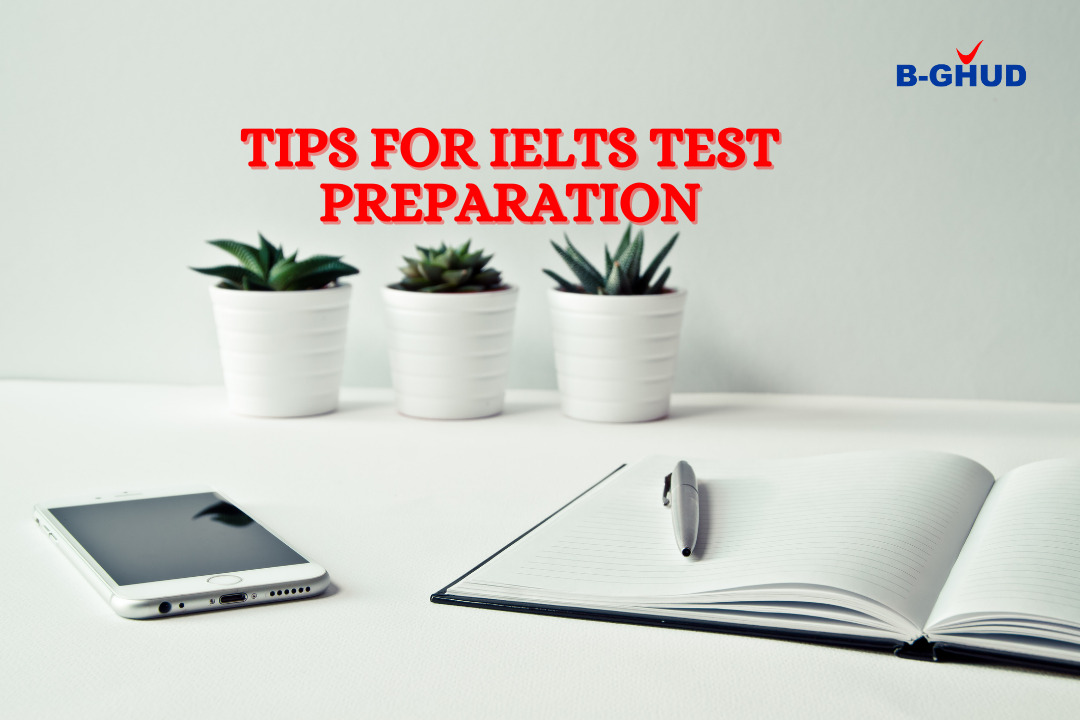IELTS is an international English language proficiency test and it has been designed in such a way that all the skills necessary to have a good standard in the language are tested. There are certain important matters that an IELTS aspirant should essentially know to be able to face the test confidently. Know first of all that passing IELTS is no child’s play, but neither is it a very difficult task. If you know what to do and prepare yourself accordingly, you can easily become an IELTS holder.
Here, B-GHUD Academy, the best IELTS coaching Centre in Kerala, shares their 26 years of experience in the field to help students.
The IELTS test format
It is extremely important that you know the IELTS test format. The key to your success in IELTS is a sound familiarity with the test pattern and format. B-GHUD has published one of the bestselling books in India on IELTS, “IELTS & TOEFL Made Easy,” which contains exhaustive information on each and every aspect of the test. It will give you all the information, tips and lessons that you will need to face IELTS with a smile.
IELTS Listening Module
IELTS listening module is demanding. You have to provide answers to 40 questions during 4 recordings. The recordings will be played only once. Typical questions include sentence completion, summary completion, form completion and multiple choices. It is possible for you to get lost during a conversation, but you need to recover fast or you will miss all the questions of that task afterwards. This would be a disaster. As such, it is essential to understand how to follow a conversation, even if you miss something and how you can recover to continue
answering the next questions. You are also expected to understand what type of information to supply depending on the question type – a number, a name, an address etc.
The Speaking Module
This test is less than 15 minutes long and is split into three parts. The first 5 minutes are reserved for introduction and general topics between the test taker and the examiner. The second part assesses the test taker’s ability to speak about a random topic given on a cue card. The last part merely adds complexity to the second. At this stage, the examiner will also pay attention to pronunciation, lexical resources and fluency. Practising each part under exam conditions is essential to your test preparation and you will also get used to the pressure you will have during the test. You need to be able to write down notes that will help you to talk for two minutes during the second part of the test. You should also practice answering questions when you don’t really know the answer. Remember that your knowledge is not assessed but your English language proficiency is.
IELTS Reading Module
The IELTS reading module tests a wide range of reading skills such as reading for gist, reading for main ideas, reading for detail, skimming, understanding logical argument and recognising writers’ opinions, attitudes and purpose. Test takers have to provide short answers, match information, complete sentences, match
headings or complete diagram labels. It is essential, therefore, to practise includes a wide variety of questions so that you become accustomed to each type. As such, developing a wide range of reading skills is essential.
Timing is of vital importance in the reading module. You will not have the time to go through the texts several times. There are strategies to help you to avoid this situation, for example, how to skim the text and what kind of information you need to focus on.
The Writing Module
It is found that the writing module is the most difficult of all. Both tasks in the academic training must be written in a formal style.
Task 1 requires that you interpret a graph/chart/table etc., which requires significant practice in English.
Task 2 is writing an essay on a given topic and presents a number of challenges. Often, the topic given can be hard to develop if you are not familiar with it. In addition, the essay must have a proper structure.
For Task 2 requires that you write different types of essays such as Agree or Disagree, Discuss two Opposing Opinions, Advantages and Disadvantages, Problems and Solutions, Causes and Solutions, Causes and Effects. You have to familiarise yourself with the structure of an essay, how to develop it, how to write the introduction and the conclusion. You must be able to connect your ideas using cohesion and coherence.
Tips in general
Take a practice test. Understand the test format. Be aware of the exam time constraints. One of the biggest mistakes students make is to forget to improve their English. Start preparing for your test well in time. We recommend finding an institution which will help you with English development and IELTS strategies. Listen to native speakers talking to one another and if possible join in. Bear in mind that self-learning is possible as long as you are committed.
Above all, to make things really easy for you, why not join B-GHUD Academy, the leaders in the field and the top training Centre for IELTS in Kerala, India?

